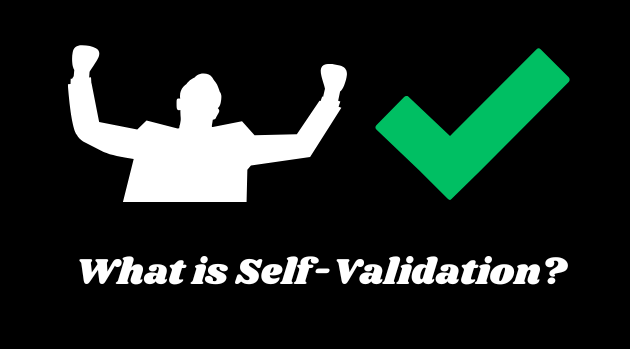In a world often driven by external approval, the concept of self-validation emerges as a powerful practice to foster self-esteem and emotional well-being. At its core, self-validation involves recognizing and affirming your feelings, thoughts, and experiences without seeking constant validation from others. It’s about embracing your intrinsic worth and acknowledging your emotions as valid, regardless of external opinions.
The Importance of Self-Validation
External validation, while comforting, can be fleeting and inconsistent. Relying solely on others’ approval for your sense of self-worth can lead to a rollercoaster of emotions, as your value becomes contingent on others’ judgments. Self-validation, on the other hand, provides a stable foundation of self-assurance. By acknowledging your emotions and experiences, you cultivate a deep sense of understanding and acceptance of yourself.
Practicing Self-Validation
1. Acknowledge Your Feelings: Start by recognizing your emotions without judgment. Whether it’s joy, sadness, anger, or uncertainty, allow yourself to feel without downplaying or dismissing your emotions.
2. Validate Your Experience: Tell yourself that your feelings are valid. Remind yourself that it’s okay to feel the way you do, given the circumstances. Offer yourself the same compassion you would extend to a friend.
3. Positive Self-Talk: Replace self-criticism with self-compassion. Instead of berating yourself for mistakes, offer words of understanding and encouragement. Treat yourself as you would a cherished friend.
4. Set Boundaries: Respect your own needs and set boundaries that align with your well-being. Prioritize activities and relationships that nurture your self-esteem.
5. Celebrate Achievements: Recognize your accomplishments, no matter how small. Celebrate your progress and acknowledge the effort you’ve put into your endeavors.
6. Mindfulness and Reflection: Engage in mindfulness practices to connect with your thoughts and emotions. Regular self-reflection helps you understand yourself better and reinforces self-validation.
7. Focus on Inner Growth: Shift your focus from external validation to personal growth. Aim to improve yourself for your own satisfaction, not for the approval of others.
8. Embrace Imperfection: Understand that perfection is unattainable. Embrace your imperfections as a part of your unique journey.
Benefits of Self-Validation
1. Boosted Self-Esteem: Self-validation builds a solid foundation of self-esteem that isn’t reliant on external factors.
2. Emotional Resilience: When you validate your feelings, you develop emotional resilience, allowing you to navigate challenges with greater ease.
3. Authenticity: Embracing self-validation encourages authenticity, as you’re no longer guided solely by others’ opinions.
4. Reduced Anxiety: Seeking external validation can lead to anxiety. Self-validation eases the pressure to conform to others’ expectations.
5. Healthy Relationships: When you value yourself, you attract healthier relationships built on mutual respect.
A Transformative Practice
Self-validation is an ongoing practice that requires patience and self-compassion. By embracing your feelings, acknowledging your worth, and nurturing your authentic self, you can experience a profound transformation in how you perceive yourself and interact with the world. As you master this art of self-affirmation, you’ll find a newfound sense of empowerment and inner peace that radiates from within.

























































